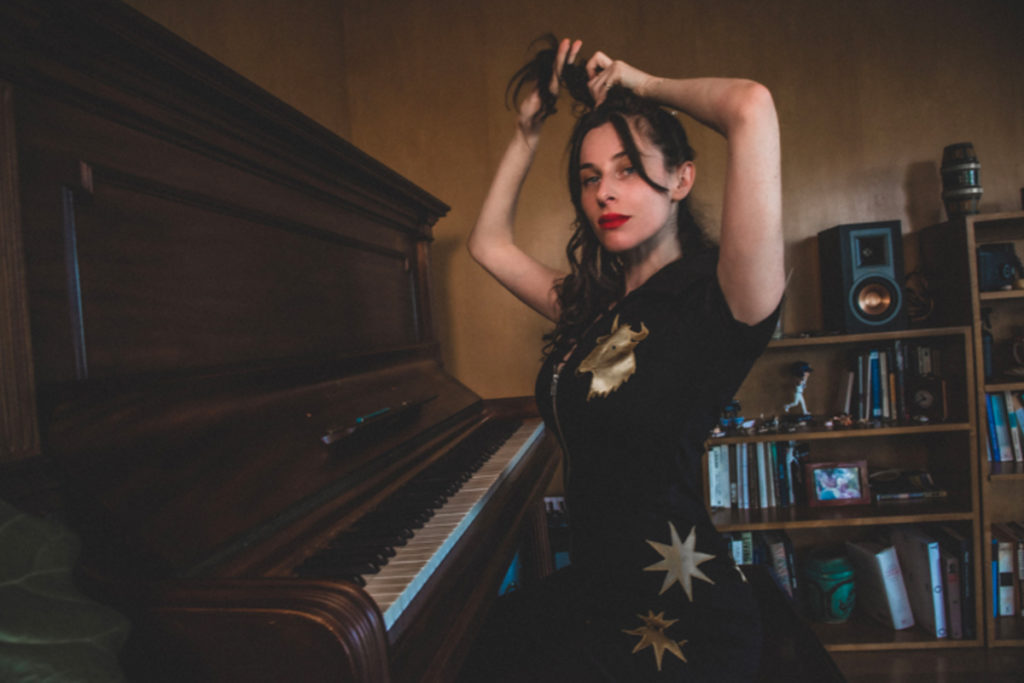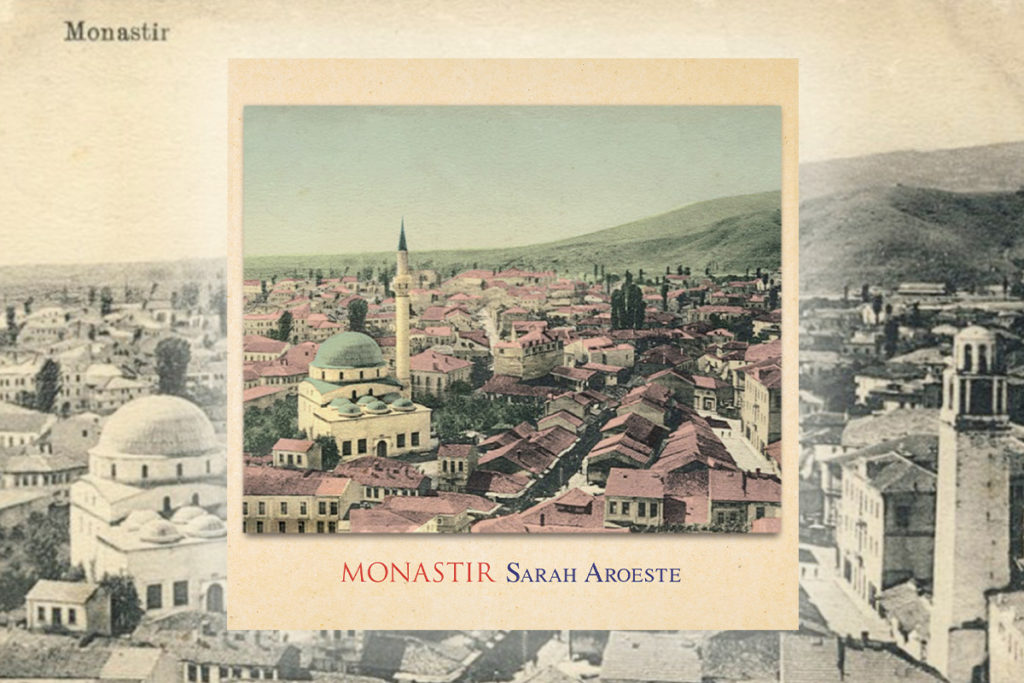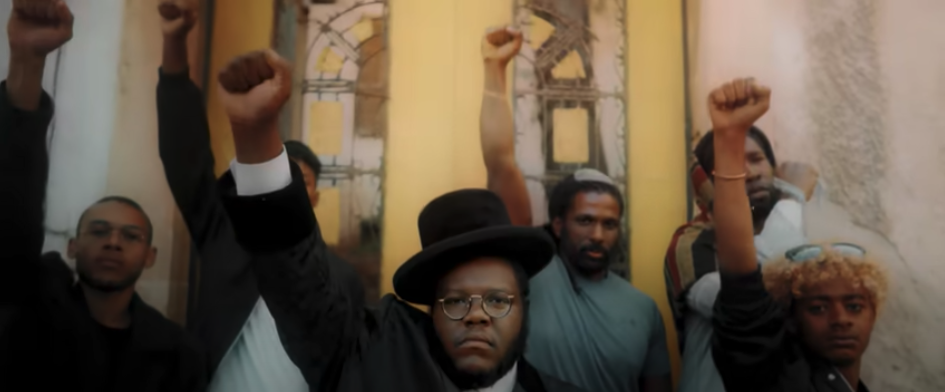This Jewish year in music gifted us with a new album from a wide variety of Jewish musicians like Doja Cat and Ben Platt. It also introduced us to a whole host of new Jewish musicians, from ZEMBU to Erez Zobary, and saw incredible performances — from Eden Alene at Eurovision to Haim at the Grammys. Through it all, there were some notable standouts. Can we talk about Jewish pop culture in 5781 without talking about “Puppy for Hanukkah” by Daveed Diggs? No, we cannot. Here are the Almas for the best Jewish music of 5781:
Breakout Jewish Artist

In one of the songs on Buzzy Lee’s debut album, “Spoiled Love,” you can hear Sasha Spielberg read from an actual diary entry over a smooth, pulsating beat: “Don’t know what I’m doing here / Not a clue.” It’s this vulnerability that permeates the record, released in January after being delayed by the COVID-19 pandemic, that mashes electronic piano with whispery, haunted vocals to create a warm, atmospheric dreamscape that solidifies Spielberg’s place as Breakout Jewish Artist of the year.
The record was a long time coming for Buzzy Lee, Spielberg’s stage name that’s an ode to her late grandmother who ran the beloved Los Angeles kosher restaurant The Milky Way (and who was the mother of Steven Spielberg, Sasha’s dad). Previously performing with her brother Theo in the band Wardell, Buzzy Lee is Sasha coming into her own as a musician and performer while balancing the more vulnerable, interior sides of herself. The title track is soft and longing — “I’m obsessed / You probably knew / I’d do anything for you” — while “Strange Town” builds into a punchy melody. “What Has a Man Done” features the sharpest lyrics of the bunch, sung breathily about a toxic relationship: “I met you on the wrong way / And I had to let you in / I’m blistered by your skin.”
Buzzy Lee is best listened to with headphones on, alone in your bed. But don’t miss the chance to see her live when the time comes. “My dream performance is a seated 200-person theater with just a piano and a microphone and that’s it. I crave intimacy,” Spielberg told Alma. We know we’ll be there.
Bonus: an acceptance speech from Sasha Spielberg!
The Best Jewish Album

Sarah Aroeste’s album “Monastir” is so good it’s sacred — literally. Through the music, the Sephardic community of Monastir (present-day Bitola in North Macedonia), decimated by the Holocaust, springs back to life. On tracks like “Od Bitola Pojdov” and “Bitola, Moj Roden Kraj,” the joy of community is sonicized through klezmery clarinet and driving percussion. In “Estreja Mara,” the voices of a children’s choir translates into a sweet reminder of rebirth. At the same time, “Mi Monastir” is aching. Singing in the Monastir dialect of Ladino, Sarah cries out for the Jewish community that once was, the effect of which is an album that totally transforms the listener. Before “Monastir,” you had probably never heard of this tiny community. But after, you’ll never be able to forget them.
Bonus: an acceptance speech from Sarah Aroeste!
The Best Jewish Single
“Puppy for Hanukkah” was not only the best Jewish single of 5781, it’s perhaps the best Jewish single ever released. Yes, we’re going there. Jewish rapper Daveed Diggs teamed up with Disney to release a new Hanukkah song. Over beats accompanied by a clarinet and tsimbl, Diggs takes us through all eight nights through the eyes of a young boy anticipating, you guessed it, a puppy for Hanukkah, with the chorus of: “You know what I wanta / I want a puppy for Hanukkah / And Imma get just what I wanted, yep / Imma get a puppy for Hanukkah.” It’s catchy, fun and incredibly well done.
As Jesi Tyler Cruz wrote in Alma, “What Diggs gave us was an image of Black joy paired with a genre-merging instant classic that showed us authentic representation without having to tell us that that’s what was happening. Not that there’s anything wrong with explicit representation of Black Jews that share authentic narratives, shatter stereotypes, and highlight the complexity of Black identity, Jewish identity, and people who belong to both groups. It’s just nice to feel seen without being tokenized, fetishized, or having the experiences of Black Jews written by white, non-Jews who happen to be in the writers room or showcased for the sake of representation alone.”
We’ll be singing “Puppy for Hanukkah” for many, many years to come.
The Best Jewish Music Video
Orthodox Jewish rapper Nissim Black released “The Hava Song” on his 34th birthday. While you may assume it’s a remix of the classic Jewish celebratory song “Hava Nagila,” it’s so much more than that — it’s a reflection on his Jewish identity and Black Jewish pride. The video, which dropped in January 2021, is a true joy. You can’t help but smile watching Black pull up in a convertible with two small Jewish children (his actual sons!) hanging out the side and as he dances with a group of Black Jews. The visuals, paired with his lyrics, make it a mini-masterpiece.

Black is a magnetic presence, remixing traditional Jewish songs and dances to make something distinctly his own. Like his 2020 single “Mothaland Bounce,” he incorporates his own Jewish story into his music, solidifying himself as the most exciting Jewish rapper in the game. “I feel like one of the most beautiful things about me being able to make music as a Jew is that I can talk about spirituality in a way where it doesn’t conflict with people,” Black told Alma. As he raps on “The Hava Song,” “I know it feels familiar / but this a brand new groove.” Amen.